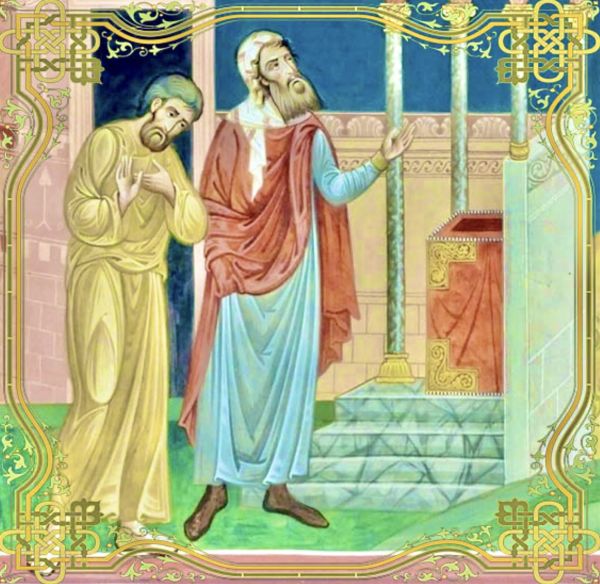The passage from Luke – Pharisee and tax collector – is very popular. It is a teaching directed at those who feel deeply righteous and look down on their brothers and sisters.
Francis always felt himself to be nothing before God, sinking into his humility like a seed into the earth.
He feared pride as much as the plague and detested it deeply.
Appearing, showing off, being proud were verbs with which he never wanted to have anything to do: he abhorred them.
We read in Celano's First Life:
"One day, filled with admiration for the Lord's mercy in all the blessings bestowed upon him, he wished to know [...] what would become of his life and that of his brothers.
To this end, he withdrew, as he often did, to a place suitable for prayer.
He remained there for a long time, invoking the Ruler of all the earth with fear and trembling, thinking back with bitterness on the years he had spent badly and repeating:
'O God, be merciful to me, a sinner!'" (Sources 363).
He feared all forms of boasting and showing off his works; he detested feeling self-righteous and all kinds of pride.
In the Regola bollata (1223), he said to his friars:
"I admonish and exhort you in the Lord Jesus Christ to guard yourselves against all pride, vainglory, envy, avarice, cares and concerns of this world, slander and murmuring" (Sources 103).
In the Rule of Clare, in paragraph 2809 of the Sources, we find the same statement, as if to highlight the same concern: to keep away from all forms of vainglory.
Francis and Clare perceived themselves as sinners, like the tax collector in the Gospel, who did not dare even to raise his eyes to heaven.
Humility and awareness of their own shortcomings led them to keep a very low profile, without boasting about anything, either before God or before men.
In fact, in the Admonitions (of Francis):
'Blessed is that servant who does not take pride in the good that the Lord says and does through him, more than in the good that he says and does through another.
The man who wants to receive more from his neighbour than he wants to give of himself to the Lord God sins' (Sources 166).
Again: "By this sign you can recognise the servant of God, if he has the Spirit of the Lord: if, when the Lord does something good through him, his 'flesh' does not take pride in it - for the 'flesh' is always opposed to all good - but rather he still considers himself vile in his own eyes and esteems himself smaller than all other men" (Sources 161).
In the Major Legend:
"Humility, the guardian and ornament of all virtues, had filled the man of God with superabundant goods. In his own estimation, he was nothing but a sinner, while in reality he was the mirror and splendour of holiness in all its forms.
As a wise architect, he wanted to build himself on the foundation of humility, as he had learned from Christ [...]
For this reason, as a disciple of Christ, he strove to diminish himself in his own eyes and in the eyes of others, remembering what the great Master had said:
What is honourable among men is an abomination before God.
But he also used to repeat this maxim: 'A man is what he is in the eyes of God, and nothing more'.
Consequently, judging it foolish to exalt himself for the esteem of the people of the world, he rejoiced in humiliation and was saddened by praise" (Sources 1103).
«God, be merciful to me, a sinner [...] for whoever exalts himself will be humbled, but whoever humbles himself will be exalted» (Lc 18,13-14).
Sunday 30th Sunday in Ordinary Time, year C (Lk 18:9-14)












